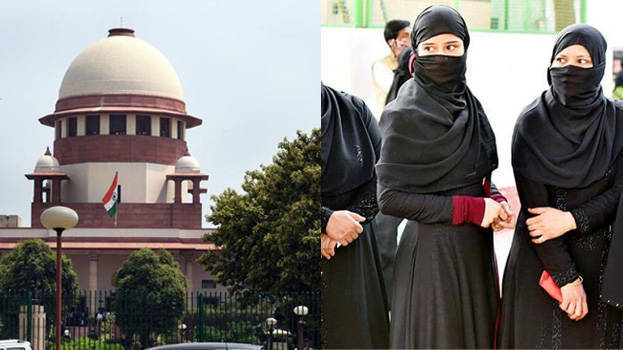In the wake of allowing women into Sabrimala temple last year, Supreme Court had waded into the tricky area of religious faith of individuals and groups and now the muck is till its neck.
A couple from Pune, Yasmeen and Zuber Ahmad, in their petition have said that the ban on women from entering Sunni mosques is illegal, unconstitutional and a violation of their dignity.
The petition contends, “there is nothing in Quran and the Hadith that requires gender segregation.” Indeed, Ibn Umar (Abdullah bin Umar) reported The Prophet Muhammad specifically admonished the men from preventing their wives from going to the mosque: “Do not prevent the maid-servants of God from going to the mosque.” (Muslim, No. 888 (Also nos 884-891 and Bukhari Vol 1, Nos 824, 832).
Some mind-twister explanations have come forth in the wake of this petition for the rights of women. Newspapers have reported that Supreme Court has made the following telling observations: “We-are-admitting-this-case-
The rumblings had begun right after the Sabrimala verdict. A petition had been filed in the Kerala High Court last year which had sought entry of Muslim women in mosques. The bench had then observed that the petition hadn’t produced enough evidence to show Muslim women being denied entry in mosques.
The ground reality is that though women are allowed in Mecca and other Jamaat-i-Islami-run mosques, in Sunni mosques in India they are forbidden—as a matter of practice and not edict though. In mosques where they do, they need to enter and exit from different gates and sit in segregation from male Muslims, either by way of a separate room or behind a line of male worshippers.
Most Muslims in India are Sunni (only 10-15% being Shia adherents), i.e around 175 million of 200m Muslim population. Gender inequality in the Muslim community is largely perceived to be a real issue. For instance as per a report, for every divorced Muslim male in India, there are four Muslim women divorced. Triple Talaq bill is being held back from becoming a law by the selfish motives of opposition parties in the upper house of Parliament. The sterilization process in case of Indian Muslim women is almost non-existent. The education figures tell a sorry tale. They are equally marginalized in political space and politically impoverished. Islam professes equality between men and women but in practice the chasm is huge. The conservative and fundamentalist forces of Islam dictate the norms. Muslim women thus suffer from seclusion and marginalization, passivity and low aspiration and lack of self-reliance which is neither good for the minority community nor the growth of country. They hardly have decision-making position in a typical Muslim family in India.
Importantly, its’ certainly a case of gender segregation and oppression and now that Supreme Court has waded into the religious domain of individuals/groups as demonstrated in Sabrimala case, it would be interesting to see its’ stance in the matter of present petition in favour of Muslim women entering mosques.
The dissenting voice of Justice Indu Malhotra in the 4-1 SC verdict in favour of women entry in Sabrimala bears repetition: “Issues of deep religious sentiments should not ordinarily be interfered by the court…what constitutes essential religious practice is for the religious community to decide, not for the court…Present judgment won’t be limited to Sabarimala. It will have wide ramifications, issues of deep religious sentiments shouldn’t be ordinarily interfered into.”
These words could come back to haunt the Supreme Court as it has walked into a snake pit. Like the tricky Ayodhya issue which hasn’t found a solution after decades and which has now been left in the hands of mediators, Muslim women in mosques is a legal matter in which the authority and decision of the Supreme Court could be stretched to the limit.


